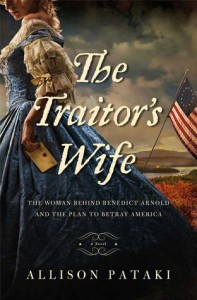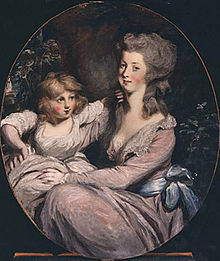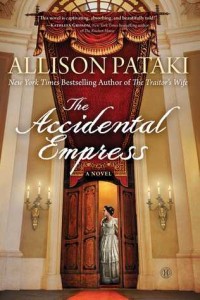 Format read: ebook provided by the publisher via Edelweiss
Format read: ebook provided by the publisher via EdelweissFormats available: hardcover, ebook, audiobook
Genre: historical fiction
Length: 512 pages
Publisher: Howard Books
Date Released: February 17, 2015
Purchasing Info: Author’s Website, Publisher’s Website, Goodreads, Amazon, Barnes & Noble, Kobo, Book Depository
New York Times bestselling author Allison Pataki follows up on her critically acclaimed debut novel, The Traitor’s Wife, with the little-known and tumultuous love story of “Sisi” the Austro-Hungarian Empress and captivating wife of Emperor Franz Joseph.
The year is 1853, and the Habsburgs are Europe’s most powerful ruling family. With his empire stretching from Austria to Russia, from Germany to Italy, Emperor Franz Joseph is young, rich, and ready to marry.
Fifteen-year-old Elisabeth, “Sisi,” Duchess of Bavaria, travels to the Habsburg Court with her older sister, who is betrothed to the young emperor. But shortly after her arrival at court, Sisi finds herself in an unexpected dilemma: she has inadvertently fallen for and won the heart of her sister’s groom. Franz Joseph reneges on his earlier proposal and declares his intention to marry Sisi instead.
Thrust onto the throne of Europe’s most treacherous imperial court, Sisi upsets political and familial loyalties in her quest to win, and keep, the love of her emperor, her people, and of the world.
With Pataki’s rich period detail and cast of complex, bewitching characters, The Accidental Empress offers a captivating glimpse into one of history’s most intriguing royal families, shedding new light on the glittering Hapsburg Empire and its most mesmerizing, most beloved “Fairy Queen.”
My Review:
If the combination of The Traitor’s Wife (reviewed here) and The Accidental Empress tell us that the author has a penchant for writing historical biographies of young women who are thrust (or thrust themselves) into influential positions for which they are not exactly suited, then this reader is all for it.
The Traitor’s Wife shows the American Revolution through the eyes of a young woman who tries to bring it down. The Accidental Empress shows us the fall of the long-reigning Hapsburg dynasty of Austria. While we don’t see it in this book, Elisabeth’s life and trials lead in a slightly crooked line to World War I.
In some ways, Elisabeth’s story feels as if it happened in the Middle Ages. Her life as the Austrian empress shows a world that had not changed since the Hapsburgs first came to power in the 15th century. At the same time, the rest of the world is in the midst of the Victorian Era, with its explosion of revolutions and industry. Elisabeth was born in 1837, just months after Victoria took the throne in England.
But as I read this not-too-fictionalized biography of Elisabeth of Austria, the person she reminded me of most was Princess Di.
Like Diana, Elisabeth married at a relatively young age. She was only 15 when she met Franz Joseph, the emperor of Austria. When they married, Elisabeth was 16 and suddenly thrust into a “family business” of empire for which she was not prepared. Elisabeth was a member of the nobility in Bavaria, but had been raised in a particularly liberal (some may read that as neglectful) household. Finding herself in the midst of a court that thrived on rules and victimized any who deviated, Elisabeth was lost.
Her marriage was not just a love match, but even called a fairy tale romance. She met the Emperor because her older sister was considered a suitable match for Franz Joseph. However, when the families met, Elisabeth stole his heart. Unfortunately, she had more competition for that heart than she could have imagined.
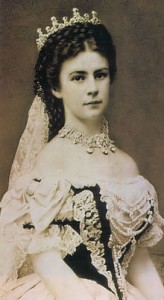
Franz Joseph’s mother Sophie chose Elisabeth’s older sister Helene because she was shy and retiring and would not challenge her for control of Franz Joseph or insert herself into the political realm where the Archduchess Sophie ruled. Elisabeth was neither shy, nor biddable, nor retiring, and did not expect to share her husband with his mother. Elisabeth also expected that her husband would respect her opinions, or at least let her ease his burdens by discussing them with her.
Sophie, and expert in passive-aggressiveness, froze Elisabeth out of everything except the expectation to produce an heir, and managed to make it all seem like Elisabeth’s fault. Elisabeth, at 16, is no match for an experienced political operative like Sophie, and it takes her 14 years to achieve some kind of separate peace for herself. When this book ends, Elisabeth is only 30. As tumultuous as her life is up to that point, it seems as if it should have taken longer. It certainly must have felt like an eternity to her.
So this is the story of Elisabeth’s marriage, it’s failures and it’s successes, and her difficulties in making a place that is truly hers in a world that is changing, set amongst a hidebound court that refuses to see that the world is changing around it.
She is every bit as compelling to the reader, as she clearly was to her own people during her lifetime.
Escape Rating A-: Just like in The Traitor’s Wife, The Accidental Empress is also the story of two women. In this case, those women are Elisabeth and her domineering mother-in-law, Sophie. And while it seems as if their intense rivalry must be part of the fictionalization, it doesn’t seem to be. The worst things that are inflicted on Elisabeth are taken straight from letters and diaries of the time. (The Victorian Era in general is very well documented)
Some readers will want to shake Elisabeth for not having stood up for herself more effectively sooner. We tend to expect 21st century sensibilities from our heroines. But Elisabeth was living in the mid 19th century, and when she becomes empress she is only 16. She also goes into the battle unprepared, while Sophie had been a political operative and the power behind the throne for decades.
And most of us are much more capable of figuring out what we want and standing up for ourselves successfully at 30 than we are at 16.
At the beginning, I said that Elisabeth reminds me of Princess Di. Like Diana, Elisabeth came from minor nobility, and had been raised without the extreme rules and regulations of the court. The Imperial Court was a rigorously controlled environment where the denizens were constantly watched for signs of weakness. Franz Joseph was raised in the “family business” of empire, just as Prince Charles was raised in the Windsor family business of royalty.
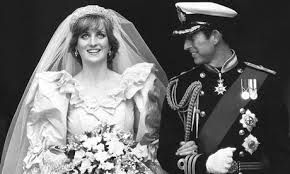 Also both were considered fairy tale matches, with the royal marrying an extraordinarily beautiful young woman from the minor nobility. There were stories about the love match in both cases. Like Diana, Elisabeth was expected to present a pretty face for the empire, and her people were expected to follow her fashion sense and love her for her beauty. Both women were tasked with providing the proverbial “heir and a spare” and got pregnant relatively quickly.
Also both were considered fairy tale matches, with the royal marrying an extraordinarily beautiful young woman from the minor nobility. There were stories about the love match in both cases. Like Diana, Elisabeth was expected to present a pretty face for the empire, and her people were expected to follow her fashion sense and love her for her beauty. Both women were tasked with providing the proverbial “heir and a spare” and got pregnant relatively quickly.
And last but definitely not least, both women discovered that they had to share their husbands with another woman who had made a place in his heart long before their advent on the scene. Three is always a crowd, whether that third is a lover or a mother.
Elisabeth usually called “Sisi” by her friends and admirers, is a fascinating woman. Her fictionalized story brings her alive and makes her empathetic for contemporary readers. Her story seems both ancient and modern, a woman trying to make her own way in a world that she is not ready for, and is not ready for her.
Her legacy lives on. She is still a popular figure in Hungarian history. And it was the assassination of her nephew, the Archduke Franz Ferdinand, that served as the opening salvo of World War I.


